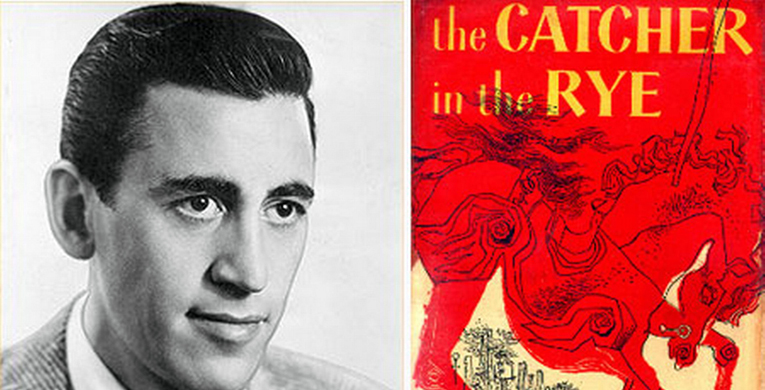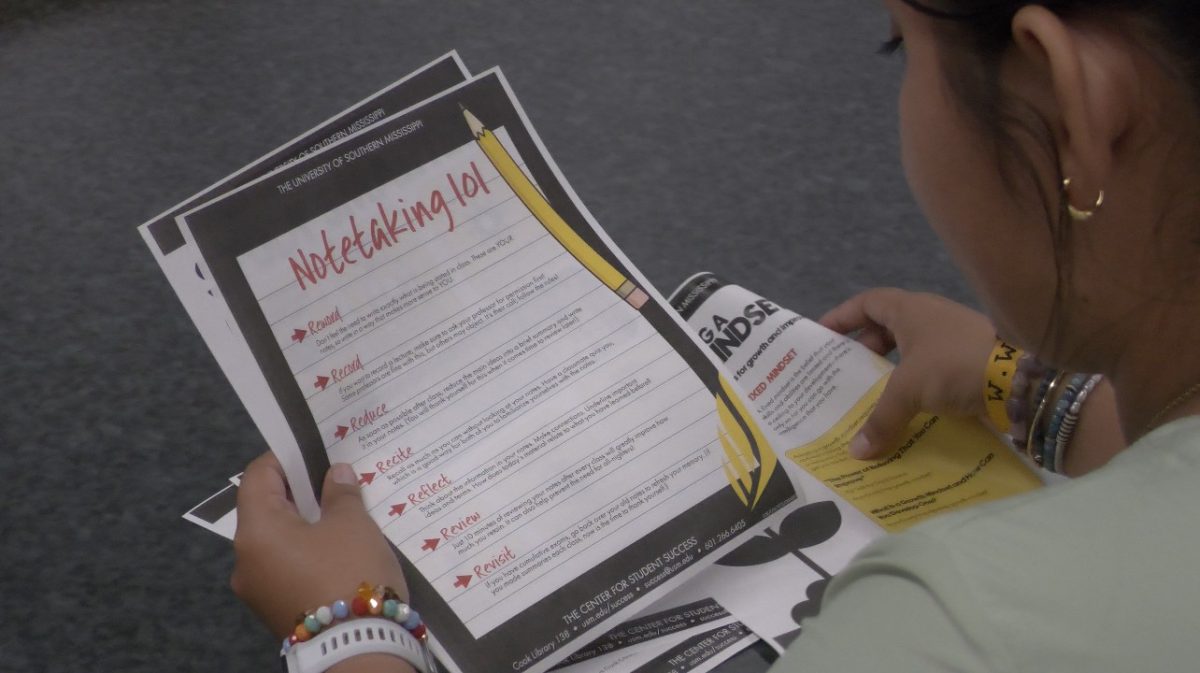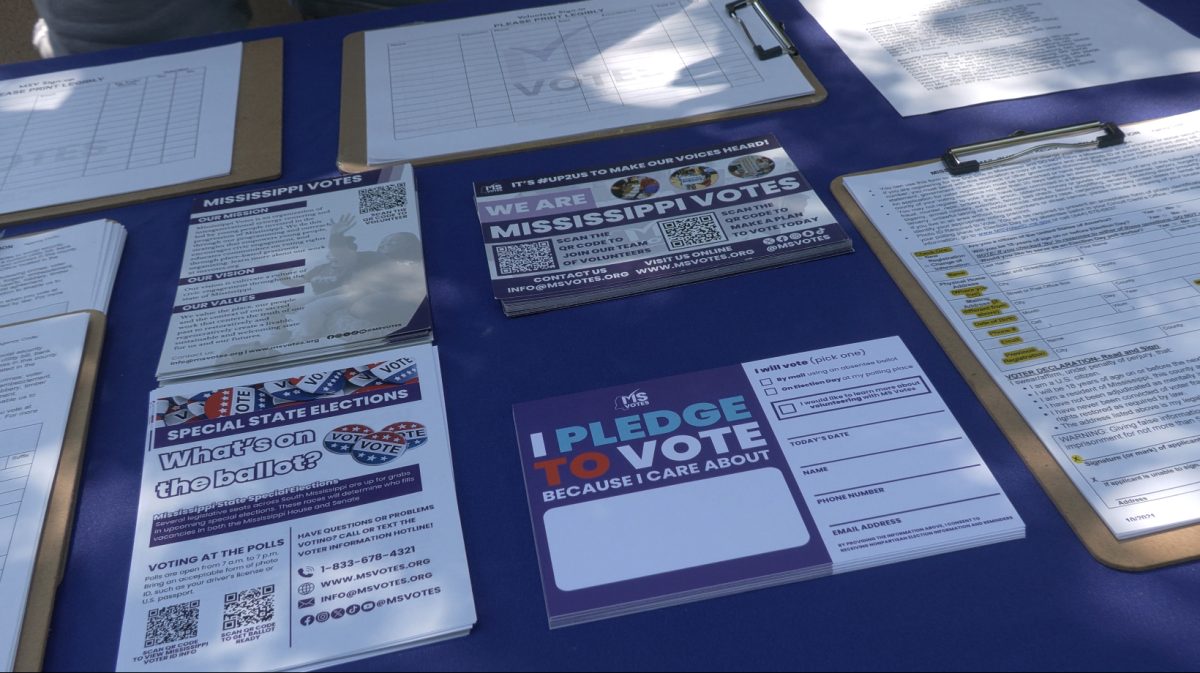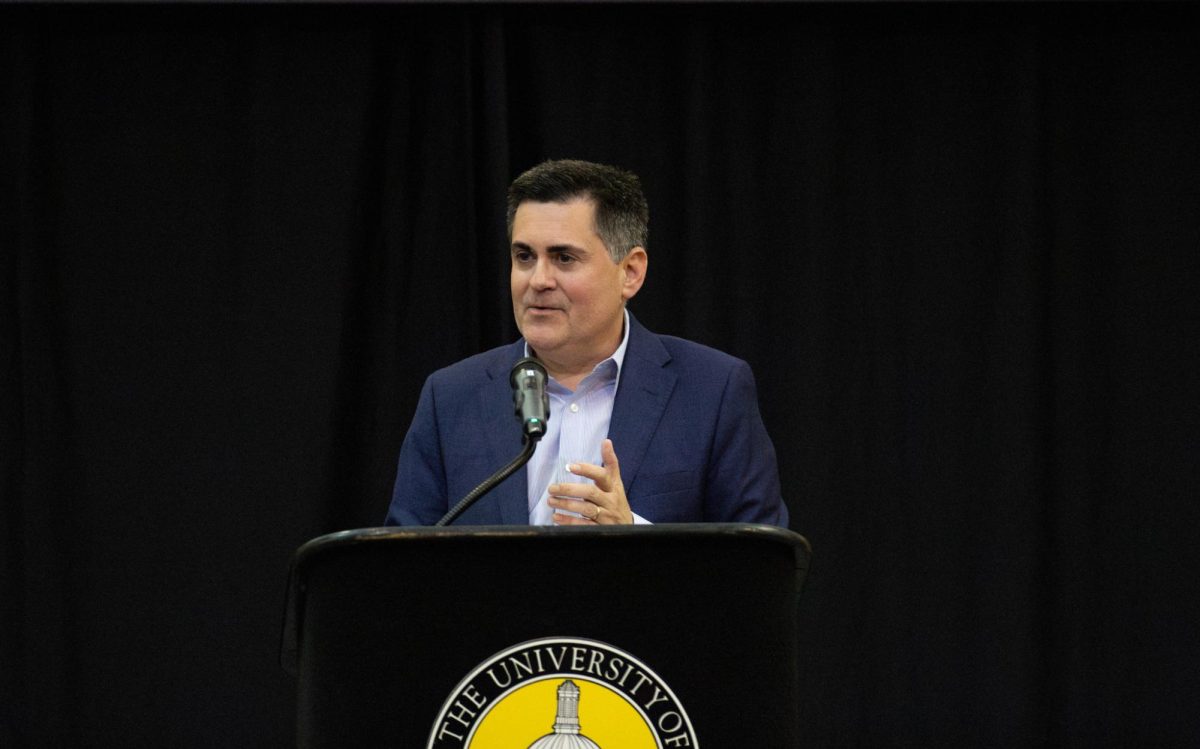
The Joseph Anderson Cook Library will host Banned Books Week at The University of Southern Mississippi Sept. 21-27, promoting the freedom to read and to choose what to read by organizing public readings on campus and raising awareness on censorship.
Every year, the American Library Association (ALA) Office for Intellectual Freedom promotes awareness of challenges to library materials and celebrates freedom of speech during Banned Books Week, typically held during the last week of September.
Hundreds of libraries and bookstores around the country this week will draw attention to the problem of censorship by mounting displays of challenged books and hosting a variety of events.
University Libraries will present the Southern Miss Read Out in the Cook Library Art Gallery Sept. 25. The event will involve members of the university faculty, staff and student body.
Vice President for Student Affairs Joe Paul, Interim Director of the School of Mass Communication and Journalism David Davies, Honors College Dean Ellen Weinauer and many more will read excerpts from various books from the list of most frequently challenged books.
The selection includes books such as J. D. Salinger’s “Catcher in the Rye,” John Steinbeck’s “Grapes of Wrath,” Aldous Huxley’s “Brave New World” and Victor Hugo’s “Les Misérables,” all of which were once banned for various reasons.
“The purpose is to bring attention to citizenship rights and highlight our freedom to read and to choose what we want to read, without someone else dictating that or telling us what we can or can’t do,” said Dawn Smith, assistant to the dean for publicity and outreach at the University Libraries. “It’s promoting the right and the freedom to read whatever you’d like to read.”
Banned Books Week is an initiative launched by the ALA in 1982 after a sudden surge in the number of challenges to books in schools, bookstores and libraries.
More than 11,300 books have been challenged since 1982 according to the ALA. There were 307 challenges reported to the Office of Intellectual Freedom in 2013 and many more go unreported.
“There is always confusion about censorship and banned books,” said Ellen Ruffin, curator of the de Grummond Children’s Literature Collection at Southern Miss. “Well-meaning parents often lodge complaints or challenges concerning books their children are reading. Parents have the right to make those kinds of decisions for their own children, but what they deem appropriate may be in direct conflict with other parents.”
While books have been and continue to be banned, part of the Banned Books Week celebration is that in a majority of cases, the books have remained available. This happens only because of the efforts of librarians, teachers, students and community members who stand up and speak out for the freedom to read.
































